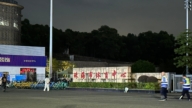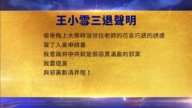【新唐人2013年06月03日讯】贵州省发布社会发展蓝皮书指出,贵州留守儿童已经达到236万,而由于农村学校教育条件落后,和农村公共文化空洞化,致使留守儿童出现精神荒漠化,从而在思想、行为、心理上偏离了正常成长发育的轨道。报告认为,解决这些问题的办法是将孩子“带出去”和“回来陪”,这一观点,被农民工普遍认为是不切合实际的“空话”。
贵州省社科院日前发布了《贵州蓝皮书•社会发展报告》指出,由于亲情的缺失及管教的失当,使留守儿童们在思想道德、心理健康上极容易出现问题。孩子与父母分离的时间越长,儿童的心理健康水准越低,各种心理问题就越突出。
所谓“留守儿童”,是指父母外出打工,而自己留在农村或寄宿在亲戚家中,长期与父母分开居住的孩子们。
大陆“中华全国妇女联合会”日前发表的研究报告显示,大陆目前农村留守儿童已达到6100多万。有资料表明,这些留守儿童主要集中在四川、河南、安徽、湖南、贵州等劳务输出大省,其中贵州省就有236万人。
贵州人士张重发﹕“贵州的留守儿童还是比较多的,特别是农村的,因为现在很多年轻人进城务工,造成很多儿童滞留在农村。据我所知道的话,百分之八、九十的人进城务工。”
河南农民工张小猛:“现在他们好像每年都会回来,有时候一次,有时候两次的,不像以前了,以前那个时候好像坐车不方便,要两年、三年有可能的。”
张重发:“有时候一年、半年才回家一次。”
据了解,留守儿童正逐渐显现出他们诸多的不良性格特征,有些孩子变得任性、自私或孤僻,有些在社会交往中变得自卑,有的孩子变得难以管教,翘课、打架、抽烟喝酒,一些人甚至会因此而走上犯罪道路。调查报告说,造成孩子缺乏教养的另外一个原因是“隔代监护”,因为隔代监护会造成“重养不重教、重物质轻精神”。
河南农民工 张小猛:“孩子大多数是爷爷奶奶(照顾)吧,还有一些是外公、外婆。现在就是主要是拼经济了,所以小孩包括受教育,其他方面,心理方面受一些负面的影响,可能他们考虑不了那么多吧,应该说有钱人可能在乎,穷人没有经济能力在乎这些。”
蓝皮书指出,目前解决“留守儿童”问题的好办法是“带出去”和“回来陪”。“带出去”:就是让儿童能随父母一起迁入城市。“回来陪”就是鼓励农民工返乡创业或从事农业生产。但以上两点被农民工们认为是不切合实际的“空话”。因为“带出去”,农民工们根本负担不起﹔而“回来陪”更是无法生存。
张重发:“带到城里面的话,是一个读书、还有生活负担的问题,有很多务工的人照顾不了孩子。城里面的教育以及学校,都是一些民办的学校才照顾到这些留守儿童。因为有时候,农村的各种情况养活不了自己,土地的匮乏以及环境的破坏,还有农村的生活比较苦,收入比较低,只有进城务工以后,才能解决家里面的一些经济问题。有时候还造成农村土地闲置,没有人种土地。”
有媒体评论指出,目前,数量庞大的留守儿童已经成为大陆极为严重的社会现象,与此同时,针对留守儿童犯罪的案件也大大增加,在近期发生的校园猥亵、强奸等儿童性侵害案件中,受害者也多为留守儿童。
采访编辑/张天宇 后制/葛雷
Over 2 Million Left Behind Children in Guizhou Province Facing Spiritual Desertification
Guizhou province has published its blue book of social development
indicating that left behind children have reached 2.36 million.
Due to falling behind in an educational environment
and a lack of public culture,
left behind children appear to have spiritual desertification.
Their thinking, behavior, and psychology have deviated
from the normal track of growth and development.
The report says that the means to solve this problem is to
“bring them out” and “come back to accompany them,”
but migrant workers generally consider these
as unrealistic “empty words.”
Guizhou Academy of Social Sciences recently published
“The Guizhou Blue Book: Social Development Report”.
It says that because of a lack of family care, these left behind
children are more prone to moral and psychological problems.
The longer the children are separated from their parents,
the lower their level of moral and mental health is,
and the more severe their psychological problems are.
“Left behind children” are the ones whose parents are migrant
workers living separately from their children over the long term.
The children are usually left with their relatives.
The All-China Women’s Federation recently published
a study showing there are now more than 61 million left behind
children in mainland China’s rural areas.
Statistics show that the left behind children are mainly
in the big provinces that do labor exports,
such as Sichuan, Henan, Anhui, Hunan, Guizhou, etc.
Guizhou has over 2 million left behind children.
Guizhou citizen Zhang Chongfa: “There are quite a lot of
left behind children in Guizhou, especially in rural areas.
Many kids are left in the countryside
because their young parents have gone to city for jobs.
As far as I know, 80-90% of the people in the countryside
go to the cities for work.”
Henan migrant worker Zhang Xiaomeng:
“They come back every year now, sometimes twice a year.
It’s different from the past, when transportation was inconvenient.
Back then it may have taken 2 or 3 years to come back once.”
Zhang Chongfa: “Sometimes they come home
once a year or after half a year.”
It’s known that left behind children gradually pick up bad habits.
Some of them become wayward, selfish or antisocial.
Some develop low self-esteem in social interactions.
Some become unruly, skip school, fight, smoke, and drink.
Some even resort to crime.
According to research reports, another reason
for kids’ bad behavior is their “grandparents guardianship”
which leads to lack of education and emphasis on materialism.
Henan migrant worker Zhang Xiaomeng:
“Most of those kids are taken care of by their grandparents.
Nowadays people mainly seek financial gain.
Thus, they don’t care the negative influences
on education and psychology.
Rich people may care about it, but poor people don’t have
the financial ability to care about it.”
The blue book indicates that the best solutions are to
“bring the children out” and “come back and accompany them.”
“Bring them out” means parents should bring their kids to cities.
“Come back and accompany them” is to encourage
the migrant workers to come home for farm work
or other work in the countryside.
But migrant workers consider the two methods unrealistic.
Because they can’t afford to take their kids with them,
and they can’t survive if they come back to work.
Zhang Chongfa: “If the parents take their kids to cities,
they need to support their schooling and living expenses.
Many of the migrant workers can’t take care of that.
Only private schools in cities accept left behind children.
Because of many reasons, the migrant workers
can’t live on their own in the countryside.
There is not a lot of land, and the environment is ruined.
Life in the countryside is tough, and the income is low.
They can only solve financial problems by working in the city.
There are also idle lands in the countryside no one takes care of.”
Media commentary have pointed out that left behind children
have become a severe social phenomenon now.
Meanwhile, crimes against left behind children are increasing.
Left behind children are also the majority of victims of recent
campus abuse scandals, child abuse and rape cases are.




























